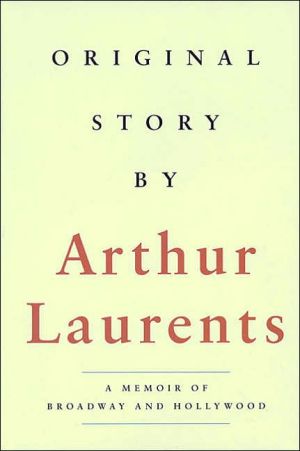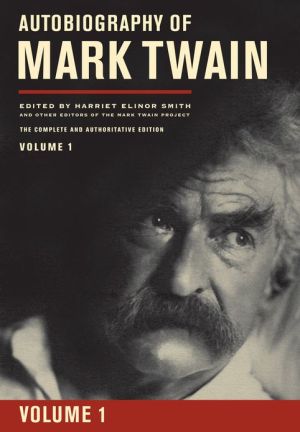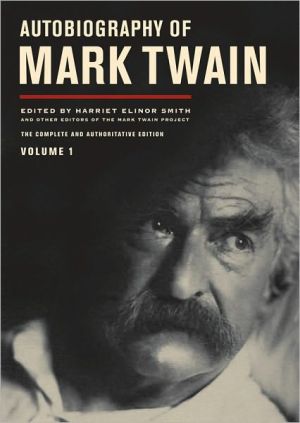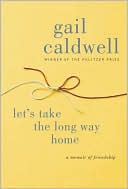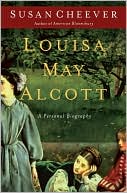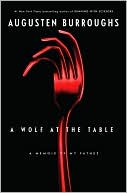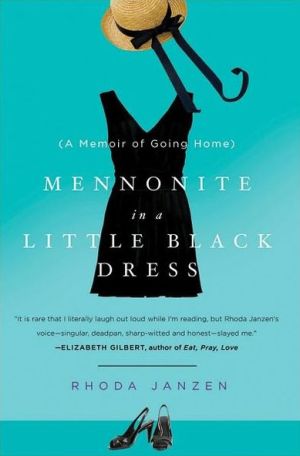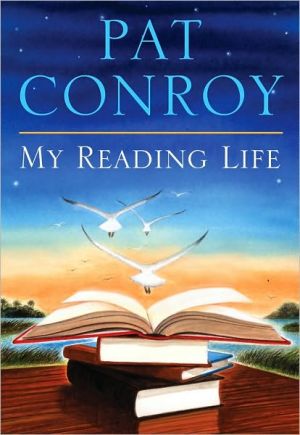Original Story by Arthur Laurents: A Memoir of Broadway and Hollywood
(Applause Books). Here is the original story of a true original, the celebrated and internationally renowned director, playwright and screenwriter Arthur Laurents, whose creative genius continues to energize American stage and screen today. Say his name, and images of West Side Story , Gypsy, Anastasia, The Turning Point , and The Way We Were appear. Laurents' highly praised memoir is a dazzling portrait of his life as he recounts the great moments, the trials and the joys of his incredible...
Search in google:
Here is the original story of a true original, the celebrated and internationally renowned director, playwright and screenwriter Arthur Laurents, whose creative genius continues to energize American stage and screen today. Say his name, and images of West Side Story, Gypsy, Anastasia, The Turning Point, and The Way We Were appear. Laurents' highly praised memoir is a dazzling portrait of his life - as he recounts the great moments, the trials and the joys of his incredible career. He takes us into his world, peopled with the creative artists, directors, actors and personalities who came of age in the theatre and in Hollywood after WWII. Later, back in New York, he writes about jump-starting Barbra Streisand's career by casting her in I Can Get It for You Wholesale. He writes about the creation of Gypsy with Jule Styne and Stephen Sondheim. And he writes about coming together in a complex, fraught collaboration with his three old pals, Jerome Robbins, Leonard Bernstein and Sondheim for West Side Story. Throughout, Laurents is funny, fierce, and frank - a life recounted as richly as it was lived. "This is a historic work. A 'must' for show biz mavens." - LIZ SMITH, Newsday and Syndicated
I began reading plays while I was at Cornell; in fact, that's almost all I did one whole year. If you had a certain average, the university allowed you to invent a course not covered in the curriculum, provided an assistant professor or better would agree to teach it. The course I invented was in the socially conscious drama since 1848. The assistant professor who agreed to "teach" the course and I had two common causes: the theatre and prejudice. He didn't love the theatre quite as much as I did, though, and his anger at prejudice was less than mine. But then, his anger came from having been the only Protestant in a Catholic school. I was grateful he had experienced that much. The course we took together -- I read the plays and reviewed them for him -- was one of the pathetically few I took at Cornell that I enjoyed or from which I learned anything. We both learned it was much easier to be a critic than a playwright. Or a teacher.\ \ \ \ I took a playwriting course from the noted Prof. A. M. Drummond, a huge man on crutches who right off the bat delivered a ukase never to begin a play with the telephone ringing. I immediately wrote a one-act play that began with a telephone ringing. If it hadn't, there wouldn't have been a play. It wasn't just rebelliousness that prompted that play; Drummond was a casually overt anti-Semite. He had no compunction about beginning a sentence with "You Jews" -- there were two others in the class -- and I was declaring war. I didn't win, not while I was at Cornell anyway. He advised me to give up playwriting.\ \ \ \ It wasn't until I was writing professionally for radio that I did happen on a good teacher: Ned Warren, who wasBill Robson's story editor. Also best friend and maker of Prairie Oysters for hangovers. Bald and rosy-cheeked, Ned looked as though he got his clothes in London (he wore ascots). He sat me down one day to discuss the scripts I had been writing. He was so wry and sardonic that I was completely unprepared when he told me I had talent. Just that, in those words: I had talent. No one had ever said that before and he was definite. I wanted to run out of the room before he continued because I knew there had to be a caveat. As indeed there was. My problem was that I was too facile. Too often, I made transitions in a scene through words, not as they should be made, through emotions. Emotions precede thought, emotions determine thought; plays are emotion. The single best lesson I have ever been given.\ \ Along with Ned's wife Virginia, Bill and Ned adopted me. I adored Virginia. She had a deep voice with laughter underneath. She wore sweater sets, pearls, and a headband. She read constantly, anything, box tops, flyers, Trollope in paperback; she sat in corners from which she tossed out off-the-wall comments; she chuckled at everybody's jokes. We all drank millions of very-dry-Beefeater-martinis-straight-up and smoked Chesterfields and Camels around the red-checkered tablecloths at the old Billy's Steakhouse on First Avenue. Sunday brunch was at Willy's -- Bill became Willy when you became his friend -- where he made huevos rancheros with Bloody Marys before and during, and Irish coffee after. I had never been so happy as I was as a member of their wedding. I was twenty-two.\
\ \ \ Acknowledgment\ ix\ \ \ Chapter 1\ Beginnings: Home of the Brave\ 3\ \ \ Chapter 2\ Hollywood University: Mrs. Selznick, Messrs. Litvak, Hitchcock, Cukor and Ophuls\ 64\ \ \ Chapter 3\ Master Class: With Harold and Stella, Shirley and Kate, Steve and Dick\ 156\ \ \ Chapter 4\ Change of Direction: I Can Get It for You Wholesale with Stark and Merrick vs. Streisand\ 220\ \ \ Chapter 5\ The Hunting Season: The Way We Were and the Way They Were\ 249\ \ \ Chapter 6\ Informing Revisited: Jolson Sings Again and Other Betrayals\ 300\ \ \ Chapter 7\ The Moon Comes Out: West Side Story, Gypsy, and Tom\ 325\ \ \ \ Index\ 421\ \
\ From Barnes & NobleThis memoir by the legendary Arthur Laurents -- author of Gypsy, West Side Story, and countless other plays and films -- is a captivating look at a remarkable life. Jerome Robbins, Stephen Sondheim, Leonard Bernstein, and Barbra Streisand are just a few of the Broadway and Hollywood luminaries to grace the pages of Original Story By. In fact, it was Laurents who gave the young Streisand her big break when he cast her in I Can Get It for You Wholesale.\ \ \ \ \ Terry TeachoutArthur Laurents' Original Story By is superbly vivid and specific, not to mention dishy. \ — Wall Street Journal\ \ \ Publishers WeeklyNo one is going to accuse Laurents, author of such noted plays and films as Home of the Brave, Rope, West Side Story and The Way We Were, of writing a sentimental, evasive or mindlessly feel-good autobiography. In a jaunty, engrossing style, the 82-year-old discusses the highlights of his 60-year career as a writer, director and producer, the ins and outs of his love life, long-term psychoanalysis and friendships with almost everyone in Hollywood and on Broadway. Laurents is brutally honest about his personal life--his difficulty coming to terms with his gayness, his anger at colleagues like Elia Kazan who named names to HUAC and his even greater anger at himself for working with them--and he rarely holds back when he thinks that others deserve criticism. He can be surprisingly harsh--he attacks Hannah Arendt for being a "self-hating Jew" and for defending Eichmann--but his critical asides often reveal a new side of a public person and are never simply catty. For example, he tells of Katharine Hepburn making antigay remarks at a dinner party; Richard Rodgers's severe alcoholism in his later career; and George Cukor's calculated "rise above being an unattractive Jewish queer by becoming an elegant silver-and-china queen and a Republican." But for all his candor, Laurents comes across as a highly intelligent, loving, politically involved, generous and gracious man--as evidenced by his commitment to social justice, his artistic vision and his long-term relationships with Farley Granger and with Tom Hatcher, who has been his life partner since 1955. (Apr.) Copyright 2000 Cahners Business Information.\|\ \ \ \ \ Library JournalLaurents, the author of plays and films that are household names (e.g., Gypsy, West Side Story, and The Turning Point), takes us from his Flatbush childhood to the world of the theater and film industries following World War II. His engrossing, unsentimental prose is, in some cases, angry, particularly when he writes of his work with colleagues Elia Kazan and Jerome Robbins, both of whom named names (including Laurents's) to the House Un-American Activities Committee. Laurents also provides clever descriptions of his methods for writing plays in his early career in radio: he linked plot twists from unpopular movies. Laurents had romantic relationships with men and women but desperately wanted to be cured of his homosexuality, even going into Freudian analysis during his long relationship with actor Farley Granger, which he hid from Hollywood. In 1955, he met Tom Hatcher, who is still his life partner. His account of Broadway and Hollywood, stripped of glamour, and his candor about his struggles with his sexuality and his successful career make this memoir an engaging read. Recommended for academic libraries with film and theater collections and large public libraries.--Lisa N. Johnston, Sweet Briar Coll. Lib., VA Copyright 2000 Cahners Business Information.\\\ \ \ \ \ BosworthIn his memoir, Original Story By, Laurents turns his clear cold eye on practically everybody he has been close to. Famous for being uncompromising as well as brutally honest, he lives up to his reputation...Laurents has a genuine appreciation of the individual artist's achievements. In his 50 years in show business, the worlds of Broadway and Hollywood have changed irrevocably. He has drawn a group portrait of some exceptional people who have now vanished. His book ends up being a tribute to them, and, whether it was his intention or not, it is a tribute to Arthur Laurents as well.\ —The New York Times Book Review\ \
